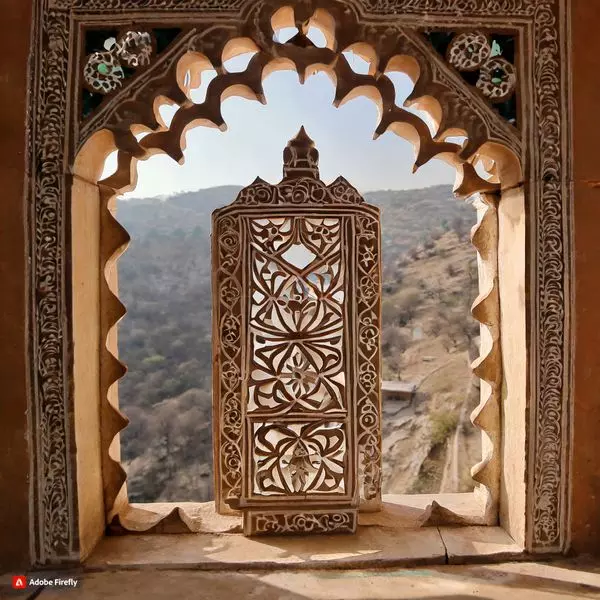The enchanting allure of Jharokha, a distinctive architectural feature, graces the landscapes of both Mughal and Rajput structures, intertwining history, culture, and functionality. Although its exact origins remain shrouded in the mists of time, research suggests that the roots of Jharokha can be traced back to the Mauryan Empire around 300 BCE. As an intricate window design, it emerged as a timeless concept, bridging the expanse between the Jammuna and the Tapti rivers, as elaborated by historian R Nath, a specialist in Mughal architecture.
Historical Context:
The term “Jharokha” is believed to have evolved from ‘jala gavaska,’ denoting an ornately designed window. Maharana Udai Singh II introduced this architectural gem to Udaipur in 1559, etching the city’s skyline with the elegance of Jharokhas. Serving both aesthetic and practical purposes, these windows were a response to the region’s hot and dry climate, shielding palace residents from the sun’s harsh rays while allowing the gentle caress of cool breezes.
Cultural Significance:
Beyond being architectural adornments, Jharokhas held cultural significance, offering glimpses into the outside world. Particularly noteworthy were their roles in places like the Zenana Mahal within Udaipur’s City Palace, providing veiled women with a discreet connection to the surroundings. Jaipur’s iconic Hawa Mahal stands as a testament to this legacy with its 953 Jharokhas, a marvel that captures the essence of Rajasthan’s architectural splendor.
Imperial Influence:
Mughal emperor Akbar, a proponent of ‘jharokha darshan,’ integrated this architectural marvel into his daily routine, conducting official business from a strategically positioned Jharokha that faced east. This practice not only allowed public observation of his daily affairs but also symbolized a connection with the sun, aligning with Hindu and Zoroastrian customs. The enduring impact of Jharokha extends across the region, adapting to the unique character of each locale.
Regional Adaptations:
In Udaipur, where stone and white plaster dominate the urban canvas, Jharokhas showcase engraved, multifoil arches, creating a delicate and pristine aesthetic against the rugged mountain backdrop. Across Rajasthan and neighboring states like Gujarat and Madhya Pradesh, the ornamental window seamlessly adapts to the diverse architectural tapestry, embodying the rich cultural tapestry of the region
As we trace the lineage of Jharokha, we unravel a tale woven with threads of history, culture, and architectural finesse. From its ancient origins during the Mauryan Empire to its enduring presence in contemporary structures, Jharokha stands as a testament to the seamless blend of tradition and innovation. In Rajasthan and beyond, the ornate windows continue to grace palaces and monuments, preserving a rich legacy for generations to come.
Also read: The Enchanting Theyyam Dance: Reviving Ancient Tales In North Kerala













